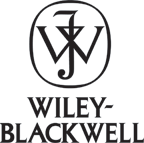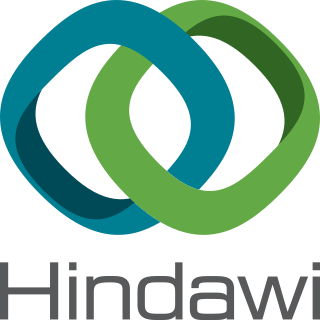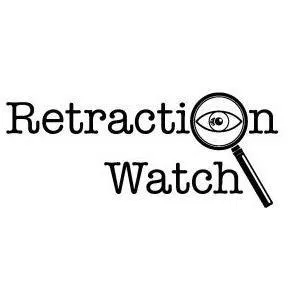Related Research Articles
Scientific misconduct is the violation of the standard codes of scholarly conduct and ethical behavior in the publication of professional scientific research.

arXiv is an open-access repository of electronic preprints and postprints approved for posting after moderation, but not peer review. It consists of scientific papers in the fields of mathematics, physics, astronomy, electrical engineering, computer science, quantitative biology, statistics, mathematical finance and economics, which can be accessed online. In many fields of mathematics and physics, almost all scientific papers are self-archived on the arXiv repository before publication in a peer-reviewed journal. Some publishers also grant permission for authors to archive the peer-reviewed postprint. Begun on August 14, 1991, arXiv.org passed the half-million-article milestone on October 3, 2008, had hit a million by the end of 2014 and two million by the end of 2021. As of April 2021, the submission rate is about 16,000 articles per month.

A citation is a reference to a source. More precisely, a citation is an abbreviated alphanumeric expression embedded in the body of an intellectual work that denotes an entry in the bibliographic references section of the work for the purpose of acknowledging the relevance of the works of others to the topic of discussion at the spot where the citation appears.

In academic publishing, a preprint is a version of a scholarly or scientific paper that precedes formal peer review and publication in a peer-reviewed scholarly or scientific journal. The preprint may be available, often as a non-typeset version available free, before or after a paper is published in a journal.

Academic publishing is the subfield of publishing which distributes academic research and scholarship. Most academic work is published in academic journal articles, books or theses. The part of academic written output that is not formally published but merely printed up or posted on the Internet is often called "grey literature". Most scientific and scholarly journals, and many academic and scholarly books, though not all, are based on some form of peer review or editorial refereeing to qualify texts for publication. Peer review quality and selectivity standards vary greatly from journal to journal, publisher to publisher, and field to field.
In academic publishing, a retraction is a mechanism by which a published paper in an academic journal is flagged for being seriously flawed to the extent that their results and conclusions can no longer be relied upon. Retracted articles are not removed from the published literature but marked as retracted. In some cases it may be necessary to remove an article from publication, such as when the article is clearly defamatory, violates personal privacy, is the subject of a court order, or might pose a serious health risk to the general public.

Wiley-Blackwell is an international scientific, technical, medical, and scholarly publishing business of John Wiley & Sons. It was formed by the merger of John Wiley & Sons Global Scientific, Technical, and Medical business with Blackwell Publishing in 2007.

Hindawi is a publisher of peer-reviewed, open access, scientific journals currently active in scientific, technical, and medical (STM) literature. It was founded in 1997 in Cairo, Egypt, but purchased in 2021 by John Wiley & Sons, a publishing company based in the United States. The company has its headquarters in London, an office in Cairo, and a virtual office address in New York City.
Academic authorship of journal articles, books, and other original works is a means by which academics communicate the results of their scholarly work, establish priority for their discoveries, and build their reputation among their peers.
MDPI is a publisher of open access scientific journals. Founded by Shu-Kun Lin as a chemical sample archive, it now publishes over 390 peer-reviewed, open access journals. MDPI is among the largest publishers in the world in terms of journal article output, and is the largest publisher of open access articles.
Medical ghostwriters are employed by pharmaceutical companies and medical-device manufacturers to produce apparently independent manuscripts for peer-reviewed journals, conference presentations and other communications. Physicians and other scientists are paid to attach their names to the manuscripts as though they had authored them. The named authors may have had little or no involvement in the research or writing process.
Scientific Research Publishing (SCIRP) is a predatory academic publisher of open-access electronic journals, conference proceedings, and scientific anthologies that are considered to be of questionable quality. As of December 2014, it offered 244 English-language open-access journals in the areas of science, technology, business, economy, and medicine.

Retraction Watch is a blog that reports on retractions of scientific papers and on related topics. The blog was launched in August 2010 and is produced by science writers Ivan Oransky and Adam Marcus. Its parent organization is the Center for Scientific Integrity, a US 501(c)(3) nonprofit organization.

OMICS Publishing Group is a predatory publisher of open access academic journals. It started publishing its first journal in 2008. By 2015, it claimed over 700 journals, although about half of them were defunct. Its subsidiaries and brands include Allied Academies, Conference Series LLC LTD, EuroSciCon LTD, Hilaris Publishing, iMedPub LTD, Longdom Publishing SL, Meetings International, Pulsus Group, Research & Reviews, SciTechnol, Trade Science Inc.
Frontiers Media SA is a publisher of peer-reviewed, open access, scientific journals currently active in science, technology, and medicine. It was founded in 2007 by Kamila and Henry Markram. Frontiers is based in Lausanne, Switzerland, with other offices in London, Madrid, Seattle and Brussels. In 2022, Frontiers employed more than 1,400 people, across 14 countries. All Frontiers journals are published under a Creative Commons Attribution License.

Predatory publishing, also write-only publishing or deceptive publishing, is an exploitative academic publishing business model that involves charging publication fees to authors only superficially checking articles for quality and legitimacy, and without providing editorial and publishing services that legitimate academic journals provide, whether open access or not. Namely, the rejection rate of predatory journals is low, but seldom is zero. The phenomenon of "open access predatory publishers" was first noticed by Jeffrey Beall, when he described "publishers that are ready to publish any article for payment". However, criticisms about the label "predatory" have been raised. A lengthy review of the controversy started by Beall appears in The Journal of Academic Librarianship.
Tumor Biology is a bimonthly peer-reviewed open access medical journal covering clinical and experimental oncology. It was established in 1980 as Oncodevelopmental Biology and Medicine, obtaining its current name in 1984. It is owned by the International Society of Oncology and BioMarkers, of which it is the official journal. Originally published by Karger Publishers, it moved to Springer Science+Business Media beginning in 2010. In December 2016, the journal moved again, this time to SAGE Publications. The editor-in-chief is Magdalena Chechlinska. According to the Journal Citation Reports, the journal has a 2016 impact factor of 3.650.

Conflicts of interest (COIs) often arise in academic publishing. Such conflicts may cause wrongdoing and make it more likely. Ethical standards in academic publishing exist to avoid and deal with conflicts of interest, and the field continues to develop new standards. Standards vary between journals and are unevenly applied. According to the International Committee of Medical Journal Editors, "[a]uthors have a responsibility to evaluate the integrity, history, practices and reputation of the journals to which they submit manuscripts".
In research, a paper mill is a "profit oriented, unofficial and potentially illegal organisation that produce and sell fraudulent manuscripts that seem to resemble genuine research."
References
- 1 2 3 Perron, Brian E.; Hiltz-Perron, Oliver T.; Victor, Bryan G. (2021-12-20). "Revealed: The inner workings of a paper mill". Retraction Watch. Retrieved 2022-04-12.
- 1 2 3 Chawla, Dalmeet (2022-04-06). "Russian site peddles paper authorship in reputable journals for up to $5000 a pop". science.org. Retrieved 2022-04-12.
- ↑ Abalkina, Anna (2022-03-20). "Publication and collaboration anomalies in academic papers originating from a paper mill: evidence from a Russia-based paper mill". arXiv: 2112.13322 [cs.DL].
- ↑ "Science". AAAS. Retrieved 2023-04-19.